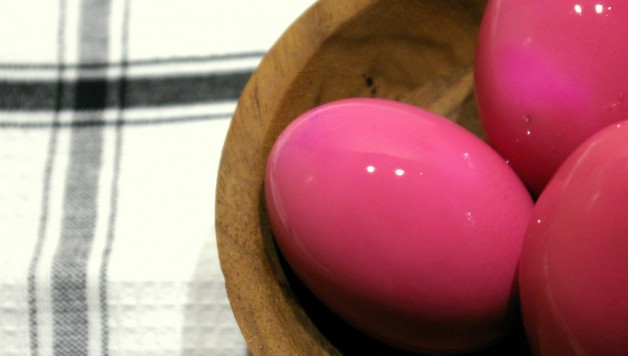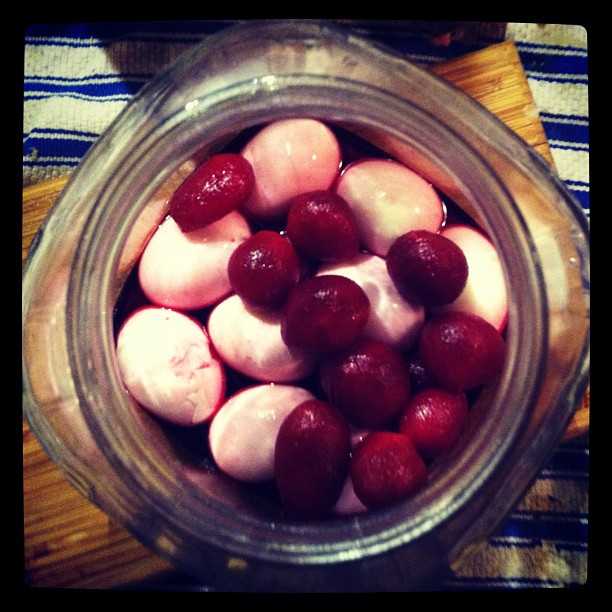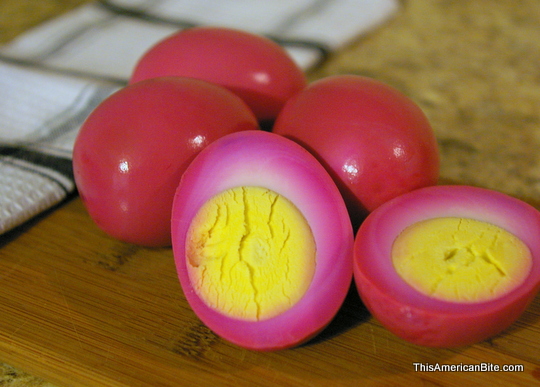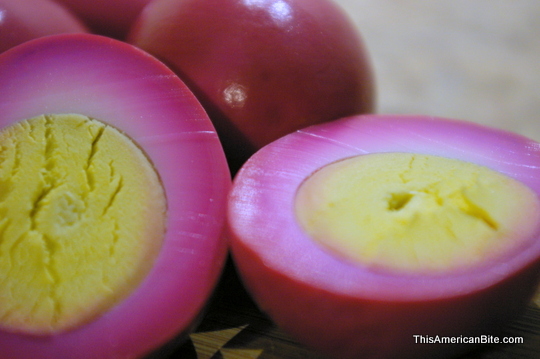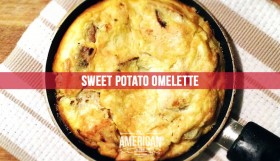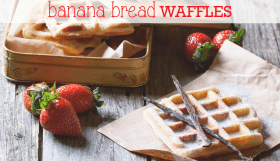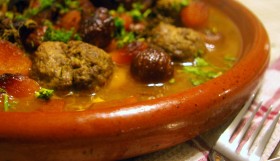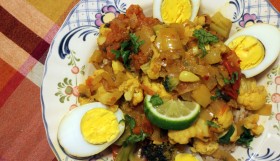Home Pickled Eggs
When I was first introduced to pickled eggs at the home of The Sephardic Table, I think I was perplexed. Forgetting for a moment that pickling preserves as well as, if not better than, refrigeration, I hesitantly tried one of these purple eggs and instantly loved the delicate balance of sweet and acidic flavors carried by this colorful little egg. One bite had me sold. I asked for the recipe and made a a batch of three dozen pickled eggs the very next day. The batch was a little large and even though they will keep for up to two weeks, I prefer to make smaller batches more often so we always have a supply.
I generally serve pickled eggs as an appetizer alongside hummus, fresh pitta bread, olives and pickles – a very Israeli approach to an appetizer course. Without fail, putting pickled eggs on the table always get a reaction. Often, it’s a hesitant “I guess I’ll try one” followed quickly by a “can I have another”, but never has anyone reacted quite so strongly as when I posted this photo on Facebook. My pickled eggs offended a passionate reader.
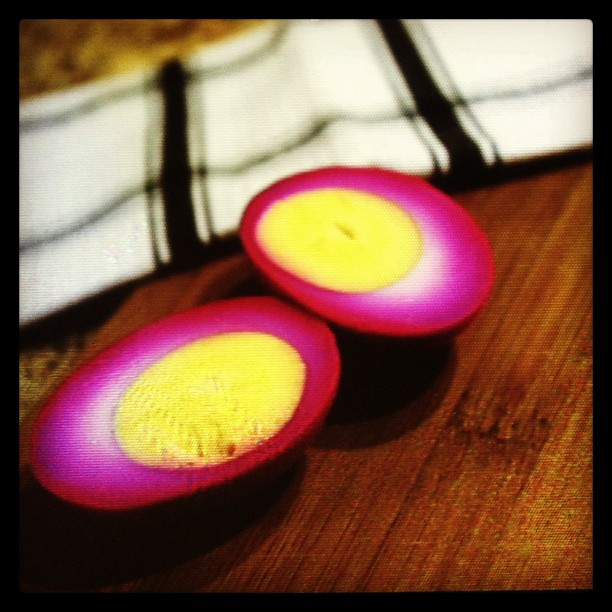
Purple Pickled Eggs
While I don’t agree with the delivery of the discontent shared on my Facebook post, I always welcome feedback on my recipes and I have a lot of respect for the vegan community. Perhaps this is reflected in the number of vegan dishes, cook book reviews and giveaways that I have hosted, but I don’t claim to live a vegan lifestyle. When I say I am “mostly vegan” I mean that we avoid meat and chicken products at least five days a week, and we don’t have any dairy in our home – but I know that that doesn’t make me a vegan.
This discussion made me stop and think about the food I eat for a little longer than usual, after all, mindless eating is never a good thing and the obesity epidemic that plagues the West isn’t going to be solved without healthy dialogue. Living in the “now generation” has lead many people to processed meals and microwaves — and away from real food. Dedicating your diet to a meatless lifestyle does give you more control over what you put in your mouth and where it comes from, and I think it requires a similar, if not stronger discipline, than living an exclusively Kosher lifestyle.
If you do decide to make these pickled eggs you might want to consider organic, cage free or free range eggs. I notice a difference between a battery egg and a cage free egg, perhaps because I am trying to be aware, or perhaps because I have read and watched enough books and movies to turn me off of processed foods. I don’t think the convenience of depending on three processed meals a day is worth the risks that come with that lifestyle but that is a decision I have come to on my own – and I don’t judge anyone who thinks differently.
Please know that no offense is intended with this recipe.
How to Make Pickled Eggs
Pickled eggs make an awesome snack to have on hand for hungry kids, or can be served as an appetizer that will certainly get a reaction from your dinner guests. They are easy to make at home so try them, even if it is just one time. You will need the following ingredients:
- One dozen hard boiled eggs
- One can of baby beets
- Water
- Distilled White Vinegar
- A large mason jar
Hard boil, and peel one dozen eggs. Once the eggs have cooled, put them in your large glass jar then open a 15 ounce can of whole baby beets and add the beets, with the liquid, to the jar. If you can not find whole beets, sliced beets will work too, but avoid using pickled beets.
How to make pickled eggs
Fill the 15oz can with distilled white vinegar then pour the vinegar into the glass jar. Fill the empty can with water and add that to the jar too. If the eggs are not completely submerged in the water, add more water so that they are covered.
Close the jar, and store away from direct sunlight for at least three days. When you are ready to serve, remove them from the pickling liquid and server whole, or sliced in half. Beet juice can stain so be mindful to rinse your hands before picking up a dish towel!
You can serve whole, or cut them in half for presentation. Notice how the color from the beets colors the egg in the photo below. Keep the eggs in the glass jar for up to two weeks but after the initial three day pickling period, I store them in the fridge.

